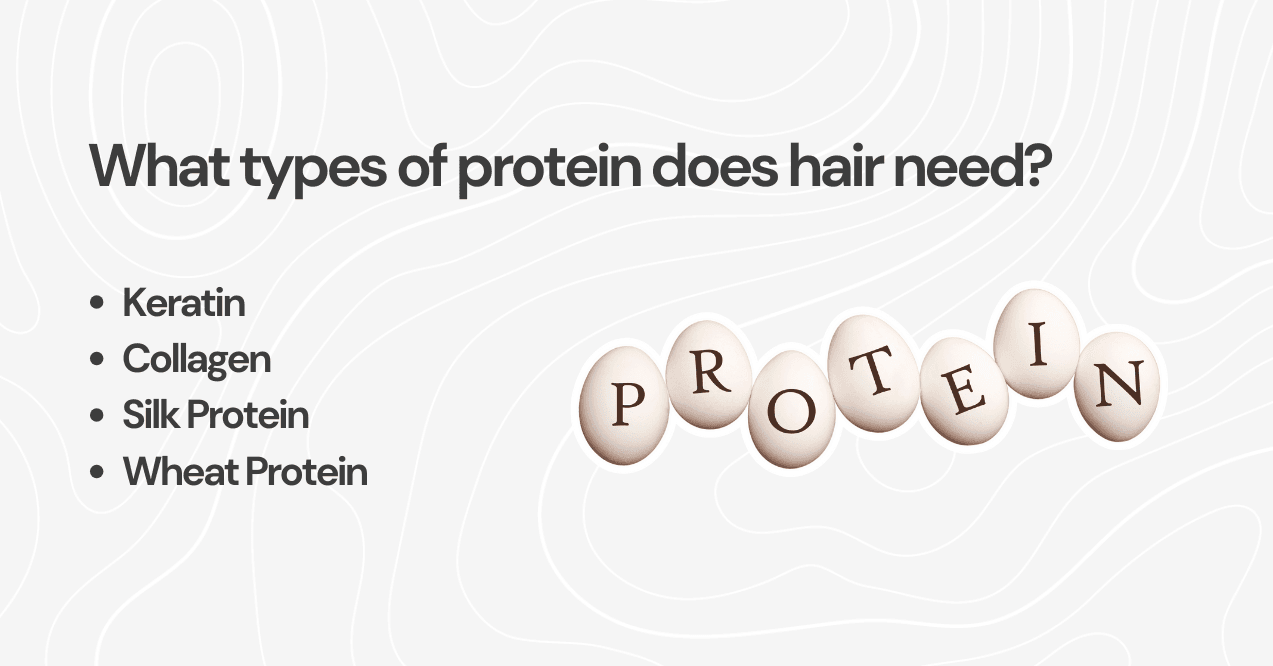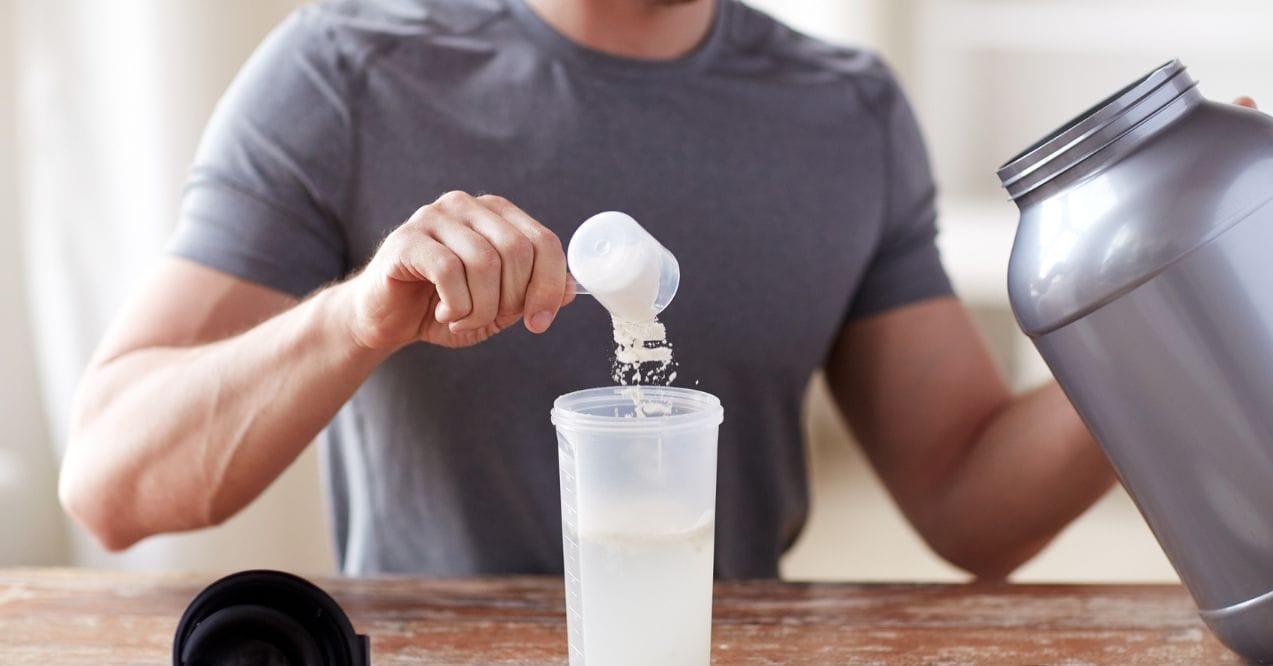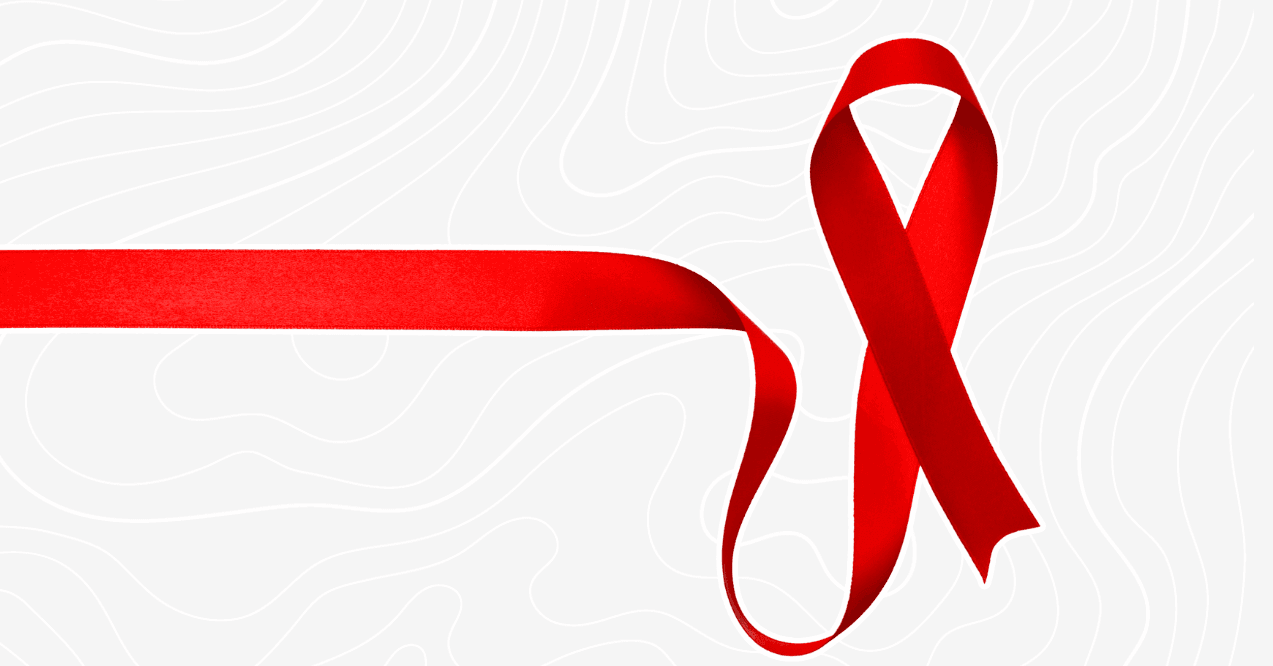What Does It Mean if My Hair Doesn’t Like Protein?
What does it mean if my hair doesn’t like protein? Protein is key for keeping hair strong and structured, just like it supports overall body health. Hair is mostly made of keratin, a protein that gives it strength and flexibility.
However, not all hair responds well to protein. Some hair may feel stiff, dry, or brittle after protein treatments. This can mean your hair needs a better balance of protein and moisture to stay healthy. Therefore, knowing how your hair reacts is essential for finding the right care routine.
Key Article Findings

What is protein for hair?
Protein is a key building block of hair, essential for its structure and strength. Hair is mostly made up of keratin – a type of protein that forms both the outer layer and core of each strand. Keratin helps hair stay durable, protecting it from damage caused by heat, chemicals, and environmental factors. Protein provides the amino acids that support keratin production, keeping hair strong and healthy.
Including enough protein in your hair care routine or diet helps promote resilience and improves the overall look of your hair.
What types of protein does hair need?

Hair benefits from various types of proteins found in hair care products, each offering specific advantages. Here’s a breakdown of the common proteins used:
- Keratin – The primary protein that makes up hair. Keratin treatments help repair damage and restore strength, improving resilience and reducing breakage.
- Collagen – Supports hair’s elasticity and hydration. Some people consume collagen and bone broth together to boost collagen intake. Wondering how much collagen is in bone broth? The amount varies, but including collagen in your diet and hair products can improve moisture and flexibility.
- Silk Protein – Derived from silk fibers, this protein adds shine and smoothness, helping retain moisture and reduce frizz for more manageable hair.
- Wheat Protein – Strengthens the hair shaft and adds volume, giving hair a fuller, healthier appearance.
What does it really mean if my hair doesn’t like protein?
What does it mean if my hair doesn’t like protein? Protein plays a key role in keeping hair strong and elastic, so when it’s lacking, your hair starts to show specific symptoms.
Here are some common signs that your hair needs protein:
- Weakness – If your hair feels weak and breaks easily, it might be a sign of protein deficiency. Protein helps rebuild and strengthen the hair shaft.
- Excessive Shedding – Losing more hair than usual can indicate that your hair lacks the strength to stay anchored. Protein treatments can help reduce breakage and shedding.
- Elasticity Issues – Healthy hair should stretch slightly when pulled. If your hair stretches too much and doesn’t bounce back, or if it breaks when stretched, it’s a sign that it needs more protein.
How to tell if your hair needs protein or moisture?
How do you know if your hair needs protein or moisture? Protein-deficient hair and moisture-deficient hair exhibit different signs, helping you determine the right treatment.
Signs your hair needs protein:
- Limpness
- Excessive Shedding
- Overly Stretchy
Signs your hair needs moisture:
- Dryness
- Brittleness
- Dullness
How to add moisture to hair:
To hydrate your hair effectively, focus on the following methods:
- Use Moisturizing Shampoos and Conditioners – Select products specifically designed to add moisture.
- Deep Conditioning Treatments – Apply deep conditioners once a week to restore hydration.
- Leave-In Conditioners – Incorporate leave-in conditioners into your routine for continuous moisture support.
- Avoid Heat Styling – Reduce the use of heat tools to prevent further moisture loss.
How to add protein to hair:
Strengthen your hair by incorporating protein-rich products:
- Protein Shampoos and Conditioners – Choose products that contain protein ingredients in hair products, such as keratin or collagen.
- Protein Masks – Use hair masks once a week to provide an extra boost of protein.
- Limit Chemical Treatments – Reduce the frequency of coloring or perming[8], which can deplete your hair’s protein.
- Balanced Diet – Ensure your diet includes adequate protein to support hair health from within.
By accurately assessing how to tell if your hair needs protein or moisture, you can tailor your hair care routine to address its specific needs. Balancing protein and moisture will help maintain strong, healthy, and vibrant hair.
Solutions for protein deficiency in hair
Addressing protein deficiency in hair requires a consistent routine that includes protein-rich treatments. Using protein treatments or masks once a week can help restore strength and reduce breakage. Look for products containing keratin, collagen, or other protein ingredients that can help rebuild the hair’s structure.
Diet also plays a role in protein deficiency. Ensuring you get enough protein from food or supplements supports hair health from within. If you’re wondering, can you drink protein shakes without working out? The answer is yes. Bone broth protein supplements, such as trumeta Bone Broth Protein, can help meet your daily protein needs. This high-quality, nutrient-dense product supplies over 30 amino acids, vitamins, and minerals, offering an easy and tasty way to support your body, including your hair, with the protein it needs to thrive.

Incorporating both topical treatments and dietary adjustments can address protein deficiency, leading to healthier, stronger hair over time.
Conclusion
So, what does it mean if my hair doesn’t like protein? In short, it means your hair may already have enough protein and might need more moisture instead. If protein treatments make your hair stiff, dry, or brittle, it’s a sign to try a different approach. Understanding whether your hair needs protein or moisture is essential for keeping it healthy.
Pay attention to how your hair responds to different products. This helps you adjust your hair care routine to meet its specific needs. Balancing protein and moisture keeps your hair strong, flexible, and vibrant. Remember, what works for others might not work for you, so finding the right balance for your unique hair is key.
If your hair feels limp, weak, or breaks easily, it may need protein. Other signs include excessive shedding or loss of elasticity, where hair stretches too much without bouncing back or snaps when pulled.
Common protein ingredients in hair products include keratin, collagen, silk protein, and wheat protein. These proteins help strengthen, repair, and add elasticity to the hair, improving its overall health and resilience.
Most hair types benefit from protein treatments every 4-6 weeks. Overusing protein can cause stiffness or dryness, so it’s important to find the right balance for your hair’s needs.
Advertisement. This site offers health, wellness, fitness and nutritional information and is designed for educational purposes only. You should not rely on this information as a substitute for, nor does it replace, professional medical advice, diagnosis, or treatment. If you have any concerns or questions about your health, you should always consult with a physician or other health-care professional. Do not disregard, avoid or delay obtaining medical or health related advice from your health-care professional because of something you may have read on this site. The use of any information provided on this site is solely at your own risk.







